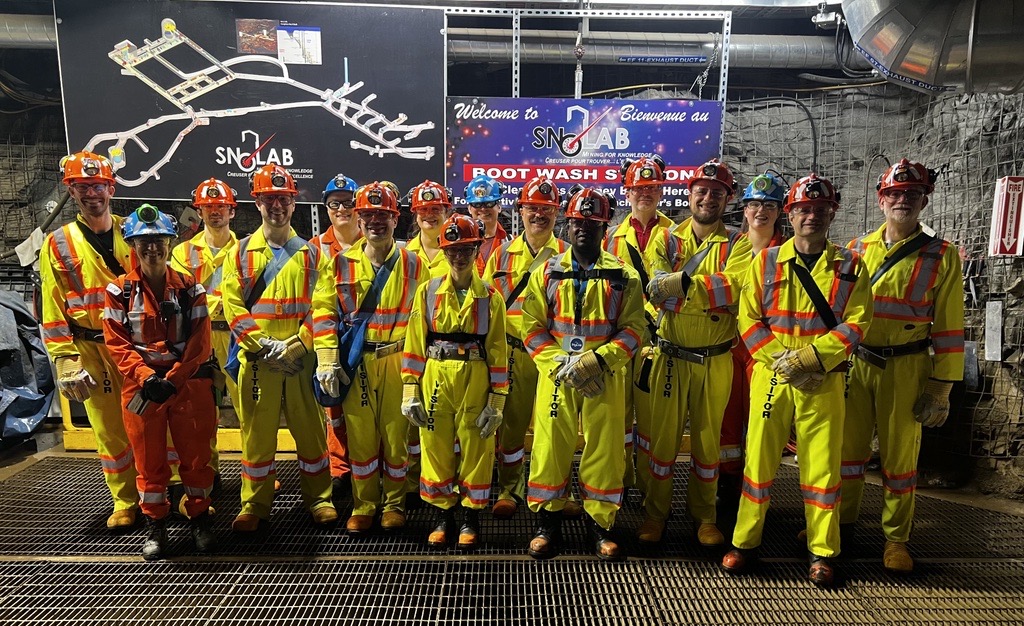SNOLAB hosts international Quantum Workshop
Last week, SNOLAB partnered with Queen Mary University of London’s School of Physical and Chemical Sciences (SPCS) to host a Quantum Workshop to find common cause between researchers pursuing quantum technology and fundamental physics.
This joint effort brought together more than 40 experts in fundamental particle physics and cutting-edge quantum sensors from across Canada, the UK, the USA, and Switzerland to explore the potential of interdisciplinary research in this rapidly evolving field.

SNOLAB, host to some of the world’s most sensitive dark matter and neutrino detectors two kilometres underground at Creighton Mine, was a perfect location for the workshop, said SNOLAB Research Director Dr. Jeter Hall.
Astroparticle physics research, which is the bulk of SNOLAB’s science program, is poised to be an early adopter of quantum technology, Hall said.
“We brought together experts in detectors for fundamental particle physics and experts in building cutting-edge quantum sensors and devices to discuss the potential for multidisciplinary research between the two groups,” Hall said.
This collaboration may both advance quantum technology broadly, and result in fundamental physics breakthroughs, such as discovering the nature of dark matter, Hall said.
“Specifically, one of the goals of the workshop was to brainstorm future projects,” Hall said. “We developed a few nascent ideas. We hope collaborating on these ideas will result in future projects exploring this exciting new research space.”
Professor Adrian Bevan, Head of SPCS, said the discussions were lively and the enthusiasm about the future research potential was palpable. The workshop’s success is evident in the enthusiastic reactions from both sides, Bevan said.
“The workshop had a broad range of participants from quantum devices makers, engineers, particle physicists and European Space Agency (ESA) quantum technology experts. This multidisciplinary group of people created a stimulating environment to brainstorm and develop new collaborative ideas,” Bevan said.
Bevan notes SPCS will be reaching out to other quantum technology researchers within Queen Mary to form a united front for securing future United Kingdom Research and Innovation (UKRI) funding opportunities, and developing new channels to efficiently transfer knowledge between research areas and countries, whether through summer schools to upskill staff and students, or similar workshops.